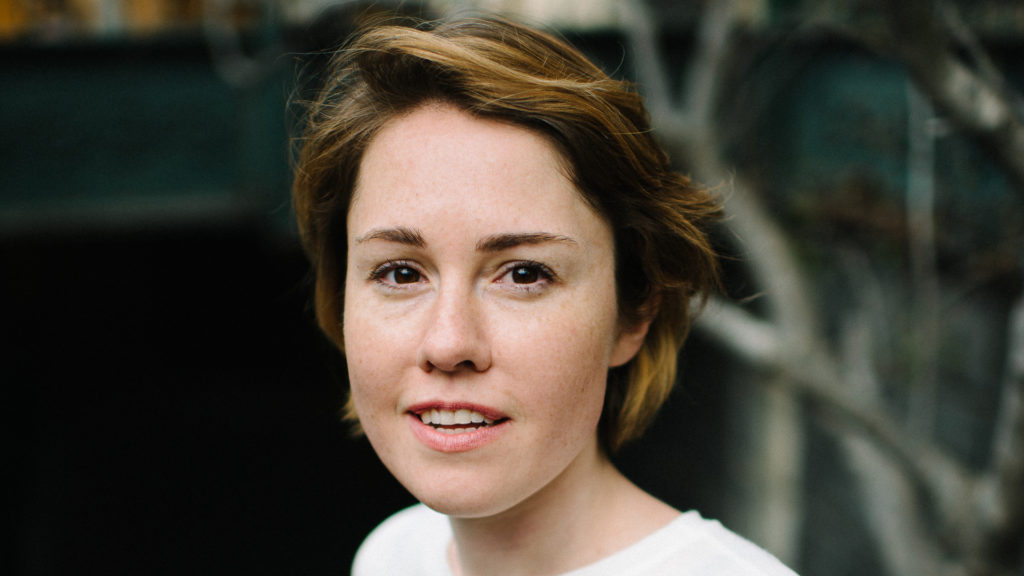“I wrote for the Hollywood Bowl on a late summer evening,” reveals composer Caroline Shaw about Observatory, a new work commissioned by the Los Angeles Philharmonic and having its world premiere tonight. “What would I want to hear sitting in the Hollywood Bowl in late August.” Those are the parameters to keep in mind if you are attending either tonight or Thursday night’s concerts.
Shaw is a composer, violinist, vocalist who became the youngest person to win the Pulitzer Prize for Music when she was awarded the prize for Partita for 8 Voices 2013. She has also collaborated with Kanye West which brought her to the Hollywood Bowl for the first time.
Which such acclaim it was inevitable that a slew of commissions would follow.
A journalist for The Guardian was mistaken when she quoted Shaw as saying she had some “18 or 19 pieces to write.” At the time the composer was talking about commissions for the 2018 and 2019 seasons. But when we spoke by phone about Observatory, she clarified her present workload.
“The things in my folder to come around to is around fifteen,” she says. “They all exist in different states. I’m usually not actively writing something for more than one piece at a time. I’ll be thinking a year or two ahead and laying the groundwork for the concept of the piece. Then I dive in in a concentrated period of time.”
Her decision-making process is pretty straightforward. “My biggest priority is to keep a well-balanced diet. I know that this year I wrote two pieces for orchestra. That’s not normally what I do, nor does it come as easily as writing for voices and string quartet. I will balance that out by not doing as much [large orchestra pieces] in the next couple of years.”

One of those pieces was Observatory. At the time of the commission she had no idea she would be opening for Beethoven’s 9th Symphony.
“I sort of feel like I already wrote my composition to go with Beethoven’s 9th with a piece for choir and brass which was meant to be paired with the 9th. I’m not sure if I had any guidelines except length which was 15-20 minutes. This clocks in at 18. I’ve never written for a full orchestra. No double winds. No extensive percussion. This one I grew it out a bit more.”
In the program notes Shaw references cosmologist Kendrick Smith who feels that knowing our place in the universe is important for us to learn. In spite of, or because of that reference, Shaw effortlessly avoids attaching any specific description or philosophy construct to her work - Observatory included.
“I don’t want to call this piece something that defines what it means to be in the universe. We like to sometimes assign narratives to things that maybe are ambiguous. My own bulls** meter goes off pretty quickly if I sense I’m saying something that isn’t exactly true. Sometimes that narrative can be spun out and solidified. The truth is writing music is a very strange thing to do and I think life is too short not to think on a very large cosmic scale.”
In those same notes she talks about science fiction storytelling as a source of inspiration.
“Science fiction is all about telling the largest stories through the smallest parts or vice-versa. That was part of the construction of this piece in its larger scale form and its small motives. Maybe this piece, more than others, has some allegorical elements, but I’m very wary of revealing them or talking about them because it can make them too direct. I’d rather leave it for someone to write their own story.”
Like any composer, sitting in an audience when your work has its first performance is an utterly nerve-wracking experience for Shaw, which is where she first hears the stories others have created.
“Being in the audience for a premiere is pretty harrowing. I’m excited and scared. The hardest part is when audience members don’t know you are the composer and they talk about how they feel. It’s flattering when they like it and uncomfortable when they don’t. There’s something in an interview that Stephen Sondheim said that ‘on the night of a premiere, don’t say anything bad to my face.’ It’s so rare to get honest criticism and feedback. I really cherish that and it’s hard to find.”
Given the title of her piece, we concluded our conversation by talking about something Henry Ward Beecher wrote in Life Thoughts. “The soul without imagination is what an observatory would be without a telescope.”
“That’s so beautiful,” she responds. “It makes me think when you are looking out and you are looking for something. You aren’t just looking for the dots in the sky or the data, you are looking at yourself. It’s the same kind of storytelling you tell about something else, but you are telling about yourself. Or sci-fi is talking about aliens, but is telling about the smallest details of human relationships.
“I like that quote. I don’t know if I agree or disagree with it. I believe very strongly in imagination. I think people are much more imaginative and creative than they think they are. As kids we are all making up stories and imagining things at the same time. At a certain point you start to believe that some people are creative and some people are not. I don’t think that’s true at all. I think you can develop a personal practice that celebrates one’s own imagination and I think that’s why I write music. It challenges me to keep working on that part of myself.”
For tickets for Tuesday night go here.
For tickets for Thursday night go here.
Photos by Kait Moreno/Courtesy of carolineshaw.com










